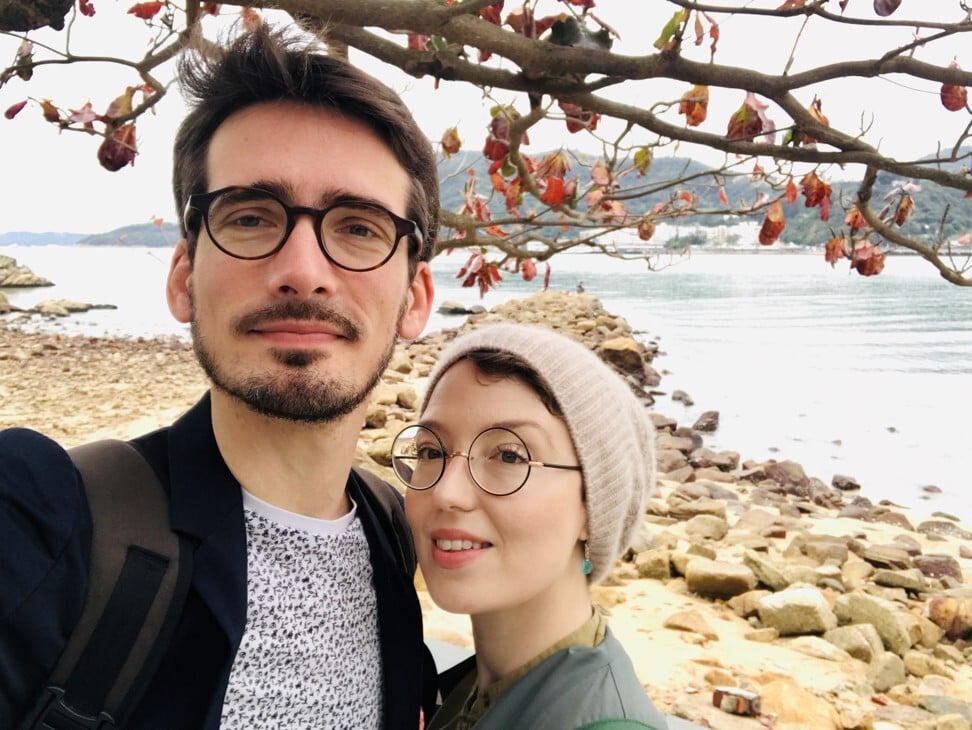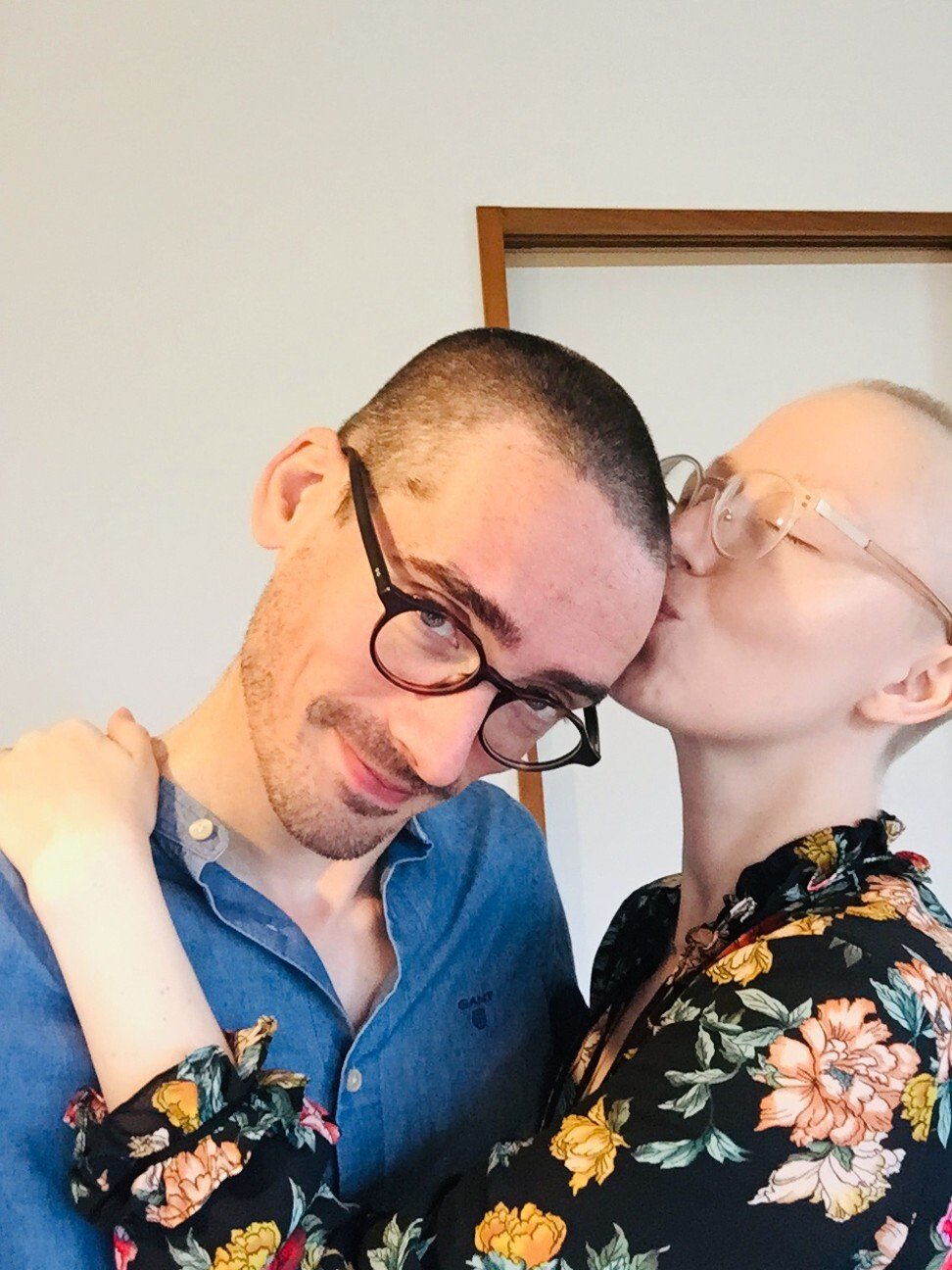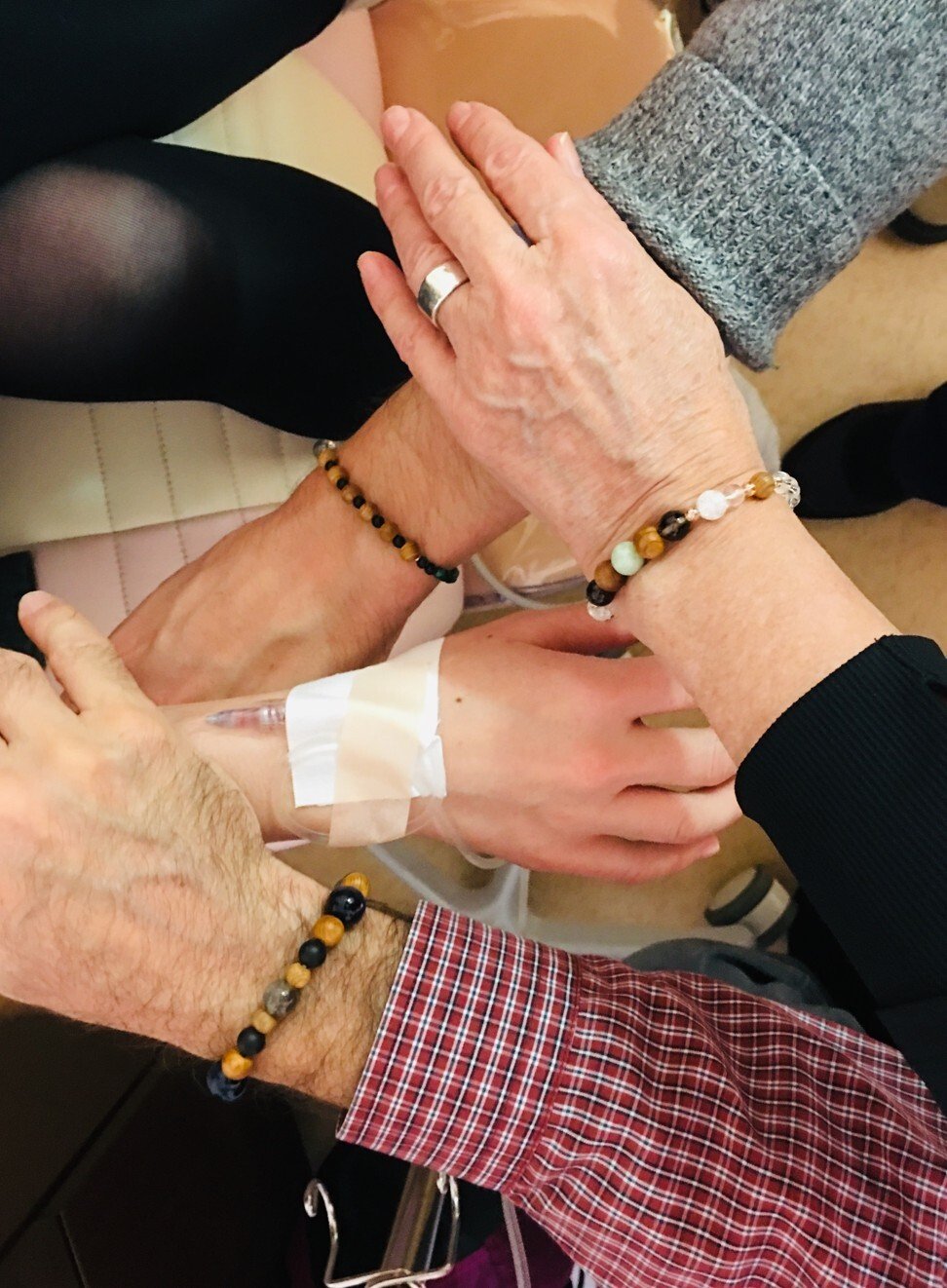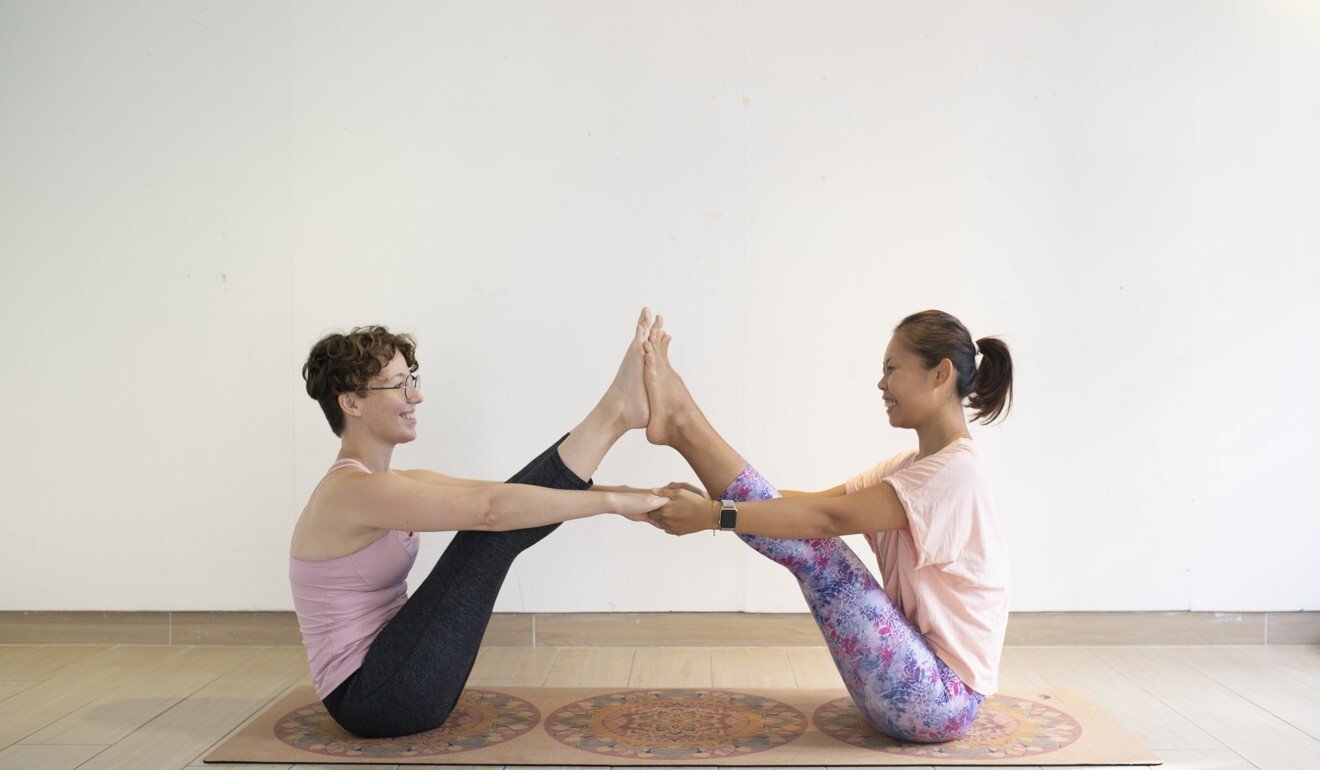
Breast cancer awareness month: survivor on her journey to recovery, and moving to Hong Kong during the pandemic
- Julia Marino was diagnosed with Stage 3a breast cancer in 2018 while living in Tokyo, Japan
- She talks about her journey towards recovery, how she ended up on Hong Kong’s Lamma Island after quarantining, and her hope she is now cancer-free
A hermit crab, when confronted with potential danger, seeks safety inside its outer shell. As the crab grows, it needs to move into larger empty shells to survive, exposing it to danger with each change.
“Maybe hermit crabs are my spirit animals,” I said to my husband, Julien, who humoured me with a half-smile and kiss. We were sitting on the roof of our new home on Hong Kong’s Lamma Island, watching the sun set, reminiscing about Okinawa.
We had just moved from Japan and were slowly settling into our salvaged shell in this strange time in history. For most of our lives, we’ve searched for it.
That sense of adventure led us to each other in Sicily four years ago, to marry in Sweden, almost move to Ireland, and at the last minute, to settle instead in Tokyo – a city where we knew no one, nor the language.

Such events present themselves like surprise gifts, to be unwrapped and embraced. Then there are those that blindside us, that we fight and accept at the same time – like breast cancer.
It’s not easy to talk about cancer. Maybe it makes us confront our mortality, that thing most natural, inevitable, and universal we’d rather not mention nor think about. But we need to talk about cancer because awareness saves lives. I believe it saved mine.
We had been in Tokyo for just a year when I was diagnosed with Stage 3a breast cancer two years ago. I had a hard knot and heaviness in my left breast, an unusual feeling I initially dismissed. But after seeing poignant pink stories shower my social media feeds, I wondered: “Could I have breast cancer?”
At 34 and with no history of breast cancer in my family, I was an unlikely candidate. Yet I knew, deep down, what it was before I met a doctor. After an efficient series of tests – ultrasound, mammogram, biopsy – the breast surgeon confirmed my suspicion.
A month later, I had my left breast removed; half of my core lost forever. With the fading of anaesthesia came the sharp pain and a soft blur of familiar faces: my husband, parents, nurses and the doctor at my bedside. “I’m sorry, it spread to your lymph nodes,” I barely heard him say, but knew what he meant: chemotherapy, radiation, hormone injections, early menopause – and embryo preservation in the hope that one day we could start our own family.

Then my blonde hair began falling out in handfuls. So I shaved my head, as did Julien and my brother, our motto “together, we grow back”.
As the cherries blossomed, so did our hair; mine in soft, brown baby swirls; his with a few more greys. My immune system and muscles regained strength as my mind became clear and I began to accept my body’s asymmetry.
I was refinding my footing when Julien arrived home with the news – he had been offered an exciting job as an innovation director in Hong Kong, a place we had never visited. From what we read, it was in political turmoil. Yet the moon pulled us toward the tide and we followed.
The pandemic caused delays, so we waited in limbo, hunkered down in a remote cottage in Okinawa, save for daily walks on the beach. Hermit crabs occupied our cove. Hundreds of them, all shapes and sizes.
We watched them form a conga line, smallest to largest. “I wonder what they’re doing?” I said to Julien. “They’re going to try on each other’s shells,” Julien said. “As they grow out of their shells, they hand them down in unison so no crab is left stranded without a shell.”

Two months on and our visas arrived like invitation letters. We put our masks on like protective shells – not only for ourselves, but to protect other weary travellers as we carried our lives through abandoned airports, trading one home for another.
In July we found a village house on Lamma Island and I began gathering a new cancer support team for follow-up care. I reached out to the nurses at the Hong Kong Breast Cancer Foundation and sought the guidance of teachers like April Tsai, an Ayurveda yoga therapist who has helped me modify my practice to prevent lymphoedema, a common and incurable condition that causes swelling in some cancer patients.
I soon found good doctors in Hong Kong who have helped me understand the impact the pandemic has had on their cancer patients.
“I saw a lot of patients with a delayed cancer diagnosis because they dared not see any doctors,” my oncologist told me, adding how many had “passed away alone in the hospital”.
Among those at highest risk of dying from Covid-19 are the elderly and the immunocompromised, such as cancer patients, a reality that hit especially close to home when my 97-year-old grandma, a cancer survivor, died from Covid-19 this summer, and I couldn’t go home to grieve with my family.

Cancer, like Covid-19, carries with it isolation, risks and fragility. It can spread fast, far, and unexpectedly, requiring us all – strangers, friends and family – to care for each other in solidarity.
As I write this, I await test results to see if cancer has returned. In a world that craves certainty, perhaps the only thing for certain is the circle of life – the chance to brave the storm and to become whole.
Even with cancer, in the year of the coronavirus, I am grateful. This story started with me, a lone cancer patient, venturing into the unknown. It ends now with all of us helping each other grow into our new shells, just like the humble hermit crab.
